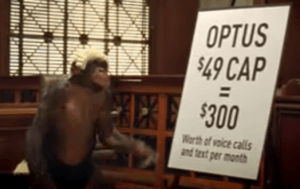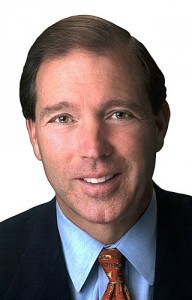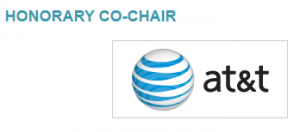 More than halfway into Glenn Britt’s appearance last week at a Wall Street-sponsored investor event, the head of the nation’s second largest cable company candidly admitted years of price hiking is finally driving a growing segment of America’s hard-pressed middle class out of the market:
More than halfway into Glenn Britt’s appearance last week at a Wall Street-sponsored investor event, the head of the nation’s second largest cable company candidly admitted years of price hiking is finally driving a growing segment of America’s hard-pressed middle class out of the market:
“There is a segment of our economy that should be of concern. We have a bifurcating economy where people who are college educated and like everybody in this room are doing okay. For that segment, pay TV [pricing] is fine. There is another group of people who are sort of falling out of the middle class. For some of those people, pay TV is too expensive.”
That’s a remarkable admission from a cable company that has consistently raised prices for its products well in excess of inflation for at least a decade, and judging from the rest of his comments, there is plenty more of the same on the way.
Britt is nearing his 10th anniversary as CEO of what is now Time Warner Cable, formerly a division of AOL/Time-Warner. In the past decade, the company he oversees has undergone a transformation in its business model. In 2001, digital cable was all the rage, delivering the 500-channel television universe at the cost of rapidly increasing cable bills. Cable broadband was just coming back from the dot.com crash, with many Americans still mystified by the concept of “www” and whether a web address had a “/” or a “\” in it.
Time Warner Cable CEO Glenn Britt tells Wall Street investors at the Sanford Bernstein conference the company is using their customers’ addiction to high speed broadband as leverage for rate increases — three in the last three years. Britt’s world view for Internet Overcharging schemes like consumption billing are reinforced in a room where ordinary customers aren’t invited and the Wall Street types in attendance dream about the enormous profits such pricing would bring. June 1, 2011. (6 minutes)
You must remain on this page to hear the clip, or you can download the clip and listen later.
 Today, broadband is threatening to become the cable industry’s most important product — one that Americans will crawl through broken glass to buy. In larger cities, the competitive war between DSL and cable broadband has been settled and DSL lost. That has brought Time Warner a steady stream of customers departing their local phone company and bringing their telecommunications business with them. Even during the economic downturn, Britt notes, one of the last products people will agree to give up is their broadband Internet access.
Today, broadband is threatening to become the cable industry’s most important product — one that Americans will crawl through broken glass to buy. In larger cities, the competitive war between DSL and cable broadband has been settled and DSL lost. That has brought Time Warner a steady stream of customers departing their local phone company and bringing their telecommunications business with them. Even during the economic downturn, Britt notes, one of the last products people will agree to give up is their broadband Internet access.
“Broadband is becoming more and more central to people’s lives,” Britt said. “It is becoming our primary product. People are telling us that if they were down to their last dollar, they’d drop broadband last.”
Britt openly tells investors Time Warner Cable will take that last dollar, and many more.
“We are able to raise prices,” Britt notes. “As broadband becomes a utility, you can charge more. So after a dozen years of not raising prices for broadband service, for the last three years we have been raising prices.”
Britt notes the company is also enjoying increased average revenue per customer as many upgrade their broadband service to higher speed tiers which deliver higher revenue to the cable operator.
But as the market for broadband matures, the next level of profits could come from so-called “consumption pricing,” which could make yesterday’s rate increases look like a miniscule price adjustment. In 2009, Time Warner Cable sought to test new broadband pricing that would have tripled the cost of unlimited broadband from $50 a month to an astonishing $150 a month. A firestorm of protests for this level of Internet Overcharging temporarily killed the prospect of OPEC-like profits, unsettling some Wall Street investors and analysts, many who refuse to let the dream die.
Among the biggest proponents of this kind of metered pricing is, in fact, Sanford Bernstein — the sponsor of the conference. So it came as no surprise Britt faced additional browbeating in the hour-long interview to reintroduce these pricing schemes. After all, Britt is told, AT&T has implemented a usage cap and Cable One has (what the interviewer calls) a “quite interesting” pricing model — delivering the smallest usage caps to customers with the highest speed tiers. So when will Time Warner follow suit?
Once again, Britt said he’s a true believer in consumption billing and thinks the industry will move in that direction, but refused to give an exact timetable. “Consumption billing” goes beyond traditional usage caps by establishing a combination of a flat monthly service fee, and additional charges for the amount of data you use. Time Warner’s original proposal limited consumption to 40GB per month at today’s broadband prices, but added an overlimit fee of $1-2 for each additional gigabyte.
The strangest part of the hour was Britt’s defense of usage pricing with an impromptu discussion with his wife the evening before about the pricing models of public transit in European capitals (they’ve no doubt visited), and metropolitan New York City.
Britt shared that in the finest cities of Old Europe, bus and train travelers paid different rates based on how far they traveled within the city. In New York, his wife noted, one price gets you access to any point in the city on the subway.
How fair is that?
Aside from the hilariously unlikely scenario either Britt or his wife have stepped foot on a New York City public bus or subway train in the last decade, his rendition of “consumption billing is fairer”-reasoning fell flat because it argues a false equivalence between the cost to move data and the expenses of a public transit system. Remember, Time Warner is the cable company that pitches unlimited long distance calling on the one platform that most closely resembles broadband — telephone service.
“People want us to invest more to keep up with the traffic,” Britt argued. “People who use it should pay less — people who want to spend eight hours a day watching video online is fine with me, but they should pay more than somebody who reads e-mail once a week.”
This is the same Glenn Britt who just minutes earlier confessed the cable company has been raising prices on all of its broadband customers for three years in a row because they can. Earlier attempts at consumption billing saved nobody a penny. Light users were given a paltry usage allowance that could be largely consumed by downloads of security patches and software updates, after which a very punitive overlimit fee kicked in. Besides, Time Warner Cable already sells a “lite” usage plan today that has few takers. Most consumers want, and are willing to pay for a standard, flat rate broadband account. That’s the account Britt and his Wall Street cheerleaders want to get rid of come hell or high water.
Britt is asked whether pay television is getting too expensive for the hard-pressed middle class. For many consumers, it is, which is why the company is developing its “welfare” tier called TV Essentials — a sampling of cable networks with plenty of holes in the lineup to remind subscribers what they are missing if they make do with this less expensive package. June 1, 2011. (3 minutes)
You must remain on this page to hear the clip, or you can download the clip and listen later.
Throughout the hour long interview, Britt’s read of the hard-pressed common American family comes across as more than a little hollow — more like hopelessly out of touch. One part Marie “Let Them Eat Cake” Antoinette and one-part “we’ll throw a bone to some and raise prices on the rest,” Britt is content lecturing consumers — discouraging them from crazy ideas like “a-la-carte” cable pricing and reasonably priced broadband.
The Wall Street crowd loved every minute, and the friendly echo chamber atmosphere made Britt feel more than welcome at the conference. While Time Warner Cable’s CEO spent more than a hour talking to Wall Street, he has no time to actually sit down and talk with his customers — the ones that want nothing to do with his Internet pricing schemes. Indeed, at one point Sanford Bernstein’s host dismisses customers as “people who want everything for free,” a contention Britt partly agreed with.
Have another piece of cake.
If you are still wealthy enough to buy an iPad and are enjoying Time Warner Cable’s free streaming app, watch out. It may not be free for long. As Britt partially admits, Time Warner Cable is using the online video service as a “Trojan Horse” to get subscribers hooked on their online video, before they attach a price tag to the service. June 1, 2011. (3 minutes)
You must remain on this page to hear the clip, or you can download the clip and listen later.
And what about all of this much-ballyhooed “investment” in tomorrow’s broadband networks?
 Britt confesses the cable company is spending less than ever on system upgrades and capital construction projects. Why? The company forecasts its demand and growth five years out and budgets accordingly. The current target is to spend just 15 percent of revenue on such projects, and based on budget planning, there is no urgent need to upgrade Time Warner’s broadband networks to keep up with demand. In fact, it was all smiles when Britt revealed one of the company’s biggest expenses — the costly set top box — may not be a permanent part of America’s cable future after all. Britt offered there was a good chance capital spending might even decline further in the future.
Britt confesses the cable company is spending less than ever on system upgrades and capital construction projects. Why? The company forecasts its demand and growth five years out and budgets accordingly. The current target is to spend just 15 percent of revenue on such projects, and based on budget planning, there is no urgent need to upgrade Time Warner’s broadband networks to keep up with demand. In fact, it was all smiles when Britt revealed one of the company’s biggest expenses — the costly set top box — may not be a permanent part of America’s cable future after all. Britt offered there was a good chance capital spending might even decline further in the future.
Britt suggests the next generation of television sets will deliver the same functionality as today’s set top box at a cost paid by the consumer. Time Warner’s slow march to all digital cable means the need for wholesale upgrades of cable systems is over for perhaps a generation. And with an IP-based cable delivery platform, software upgrades and improvements can be made without paying the high asking price charged by today’s handful of set top manufacturers.
In fact, outside of programming costs, Britt doesn’t see any long term challenges to years of good times for investors. Even minor competition from the telephone companies, who generally charge prices very similar to what Time Warner Cable charges, pose no big threat.
His biggest nightmare? A check on the industry’s near-unfettered power by Washington regulators. Despite Britt’s claims the cable industry is already well-regulated, in fact it is not. Since 1996, cable companies can charge whatever they choose for standard cable, phone and Internet service. Consumption billing, which will almost certainly be seen as gouging by consumers, may trigger an unwelcome intrusion by Congress, especially if the industry continues to cause a drag on America’s broadband ranking, already waning.
For investors, the glory days of huge rate hikes for cable television are likely behind us, Britt warns. But have no fear: for the generally well-heeled and barely-hanging-on there is plenty of room for more rate increases on broadband — and meters, too.
Once again, Britt unintentionally admits the truth: Time Warner Cable does not have a broadband congestion problem that requires an Internet Overcharging scheme to solve. In fact, he admits the cable company is spending less than ever on network upgrades for residential subscribers, and expects that trend to continue. He’s also avoiding overpaying for merger and acquisition opportunities. June 1, 2011. (6 minutes)
You must remain on this page to hear the clip, or you can download the clip and listen later.


 Subscribe
Subscribe









